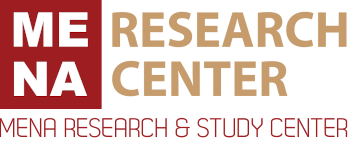How do refugees become an integral and stable part of society? This question, especially for Western Europe, with the high numbers of immigration caused by global crises, is still an essential one. It can serve as a blueprint not only for its societies, but also for the stability of its political system. It is often said that the key to integration is language, beside „cultural scissors gaps“, education in the immigrants’ home countries, tolerance and acceptance for both parts, the immigrant and the majority of a society.
A comprehensive study from Denmark has now examined the role of language acquisition by refugees, based on a high number of statistical data. In 1999, the Scandinavian country implemented a reform that expanded language courses to a total of 1,800 hours, plus 430 extra hours. The refugees could learn Danish in the courses for up to three years. Those who did not graduate could then not apply for permanent residency.
Since the reform applied to all new refugees but not to those who were already in the country, the researchers were able to determine the effects of the new measures. To do this, they followed the biographies of more than 8,500 recognized refugees who immigrated in the years before and after the reform, as well as those of their children. Up until 2016, they compared income, occupations, school degrees and crimes.
The findings agree with all those who have long been calling for high investments in language training for migrants. The study states: “Refugees who were affected by the new regulations earned more, worked more and held more complex jobs in the 18 years after the reform.” For example, those who studied Danish for longer worked more as nurses than as kitchen help. The younger refugees, on the other hand, took up higher education more often.
Expanding the language programs was therefore worthwhile for the refugees and also for the state: Because the expenses were amortized after just a few years through higher tax revenues and savings in social benefits. And that continues year after year, especially since better integration of the refugees also has long-term positive consequences: the children of those who benefited from the reform more often completed their schooling and committed fewer crimes.
However, better language education is not the answer to all the challenges of integration. The crime rate among adult refugees – which is significantly higher than among locals – did not decrease as a result of the language courses. The authors of the study interpret it as follows: Those who are motivated benefit from the language courses, but those who would have become criminals anyway would not let a few more months of Danish lessons convert them to being law-abiding. Therefore, the topic of segregation is also essential for a sociological analysis, for many Scandinavian law-makers increasing ghettos in the cities are a part of the problem.
Scandinavian immigration policy was once considered one of the most liberal in Europe. But that changed in the mid-1990s, in 2004 there was talk of »immigrant ghettos« for the first time. In 2018, the then Prime Minister Rasmussen in Denmark said the tentacles of the ghettos were spreading, Danish values such as equality, liberalism and tolerance were losing ground. A few months later he presented the „Ghetto Plan“, a law now being implemented under the Social Democrat PM Mette Frederiksen. Its declared goal: by 2030 there should be no more “ghettos” in Denmark.
A neighborhood is considered a “ghetto” if it has more than 1,000 residents and meets at least three of these criteria: More than 40 percent of the adult residents are unemployed, the crime rate is at least three times the national average and over 60 percent of the residents have no more than elementary school education (up to class 9).
Every year in December the Danish Ministry of Housing publishes a list of ghetto areas, which is now called the „List of Parallel Societies“. There has been a list since 2010, consequences only since the „Ghetto Law“. In December 2020 there were 15 districts with around 40,000 people on that list. If a quarter is mentioned there for five years in a row, the share of social housing must be reduced to 40 percent. In order to change the social mix of the district, non-profit housing is being privatized, and entire blocks of flats are being demolished if necessary.
In another legislative move, the Danish government cut social assistance for refugees over the age of 25 for 13 months. If the aim was for the refugees to use this pressure to find work more quickly, the effect was disastrous: employment and earnings did not increase. Instead, presumably due to lack of money, the number of shoplifters shot up.
But nevertheless: the study, which was published this summer in the journal „Review of Economics and Statistics“, is clear: Investing in language education pays off.
All publishing rights and copyrights reserved to MENA Research and Study Center.


























